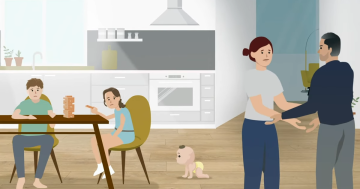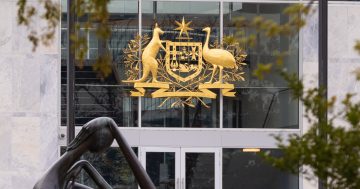
Doctors, teachers and other professionals who work with children whose parents have separated might find their jobs a little more streamlined from May onwards. Photo: Envato.
A raft of changes to the Family Law Act coming into effect in May this year will have wide-reaching implications, not only for those working in family law and separated parents but also for professionals who work with children.
The Family Law Amendment Bill 2023 will remove the presumption that parents have “equal shared” parental responsibility for children, make family violence a central consideration for courts when determining parenting arrangements and grant greater powers to protect parties and children from the harmful effects of protracted and adversarial litigation, among many other changes.
The amendments have been widely hailed as positive by legal practitioners, and one in particular has praised the potential impact this may have on any professionals who work with children.
Emily Tighe, an Accredited Family Law Specialist from DDCS Lawyers, said the amendments would streamline work for education, medical, mental health and other professionals who work with children whose parents have separated.
“Parental responsibility determines how separated parents make long-term decisions about major issues in their children’s lives, such as health care, education, schooling, religion and so on,” she said.
“With the presumption of equal shared parental responsibility repealed, the court will now be obliged to consider all relevant factors when working out which parent should have parental responsibility or whether it should be shared. The best interest of the child, not a presumption, will be determinative.
“Importantly, the new law states that people working with children of separated parents (which might include schools and doctors) do not have to establish that a parent’s decision has been made jointly with the other parent.”

Emily Tighe of DDCS Lawyers said the changes enhanced focus on each family’s unique needs. Photo: DDCS Lawyers.
Ms Tighe said the new law would encourage consultation among parents, meaning third parties could more comfortably carry out their work with children whose parents have separated.
“If parents have orders for joint parental responsibility, the new law encourages those parents to consult each other and make a genuine effort to come to a joint decision and to have the best interests of children at heart when doing so,” she said.
“Common examples of major long-term decisions could range from enrolment into a particular school to medical procedures.”
Ms Tighe said the amendments addressed some concerns from third parties working with children whose parents have separated, particularly those in high-conflict or low-communication cases.
“It’s these cases where ongoing and protracted conflict between parents about decisions they need to make for their children often means poorer experiences for their child,” she said.
“The new law means that schools, medical centres and so on don’t need to establish a joint decision has been made by both parents. The obligation lies with the parents to make a genuine effort to consult each other.”
The Family Law Amendment Bill 2023 has been credited with condensing and simplifying complex or repetitious parts of the existing Act.
Ms Tighe said the hope was that by removing a number of legislated requirements, courts could work on a more case-by-case basis to achieve better outcomes for families according to their unique circumstances, but it didn’t come without its concerns.
“Of course, this approach does create a level of uncertainty as to how the court will interpret and apply the new laws and what patterns may emerge as cases are decided from May onwards. That understandably gives people some anxiety,” she said.
“It’s reassuring, however, that the amendments were made following an in-depth inquiry by the Australian Law Reform Commission. Not all of the recommendations from that study were adopted, and these amendments form part of a broader review of the Family Law Act, including its property sections as well.
“Ultimately, these changes to the parenting laws bring an enhanced focus on tailoring outcomes to the best interests of the child, which is a good thing.”




















